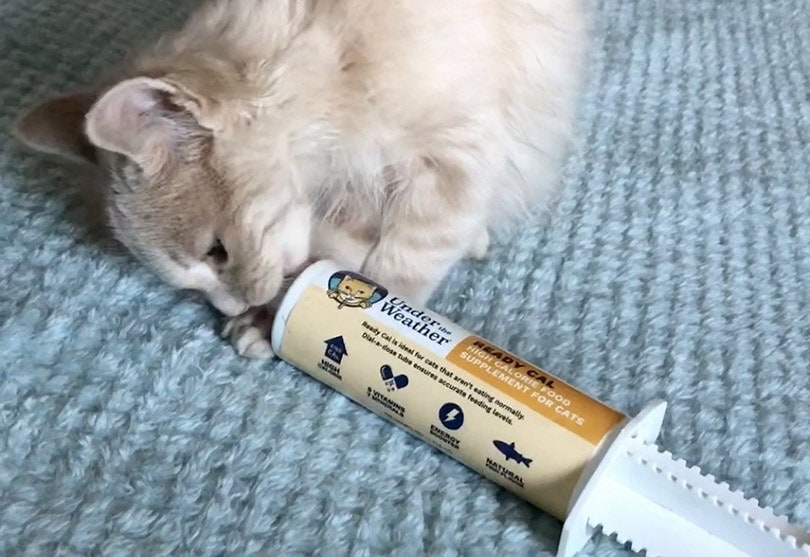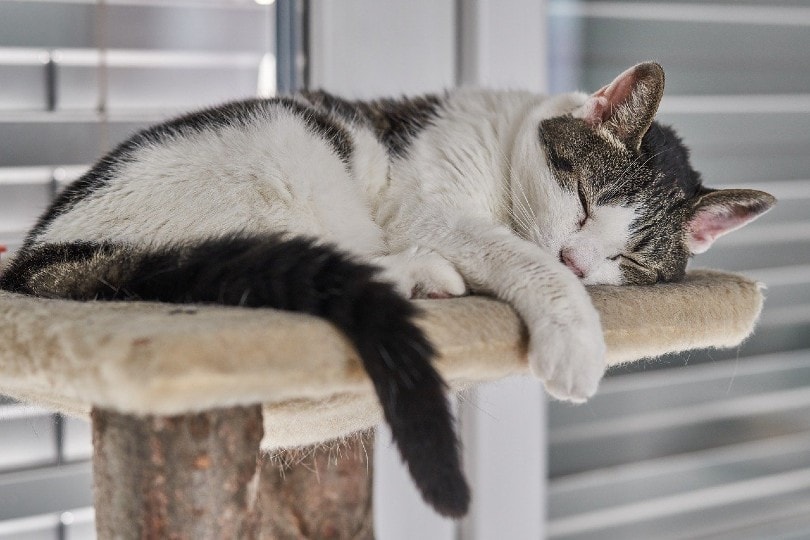My Cat Just Had Kittens What Do I Do? 10 Vet Approved Steps

Updated on
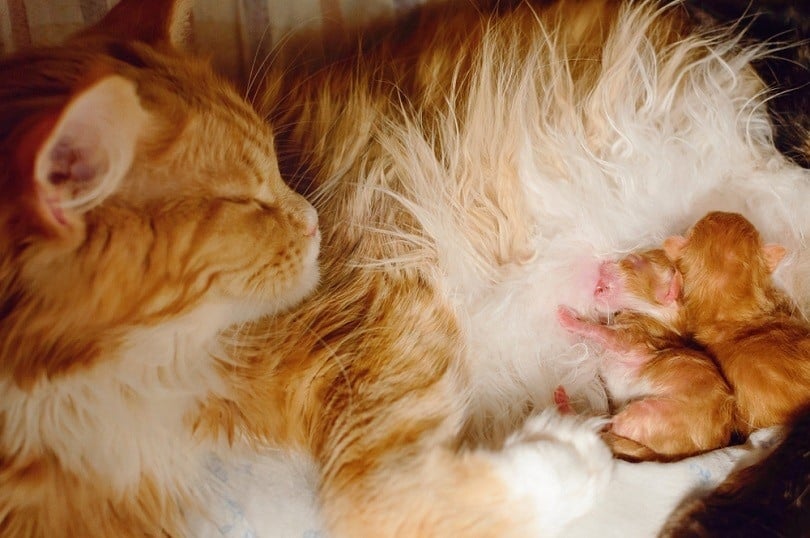
Cats are wonderful, affectionate animals that can often surprise us with a litter of kittens. While having a new litter of kittens is exciting, it also comes with a lot of responsibilities. As the owner or caretaker of these kittens, there are several important steps you should take in order to ensure their health and wellbeing. In this article, we will discuss the 10 most critical next steps for caring for kittens.
What to Do While the Kittens Are Being Born
- Provide a quiet and comfortable environment for the mother cat to give birth in, and make sure that the area is well-ventilated. Avoid disturbing her during this important time.
- Ensure that the mother cat has plenty of fresh food and water available throughout labor and delivery.
- Observe the birthing process from a distance but stay close enough to intervene if necessary.
- If the mother cat appears to be having difficulty giving birth, contact your veterinarian immediately for help.
- Ensure that one placenta is delivered for each kitten born. Retained placentas are a serious complication.
- After all of the kittens are born, make sure that they nurse from the mother cat within two hours of being born in order to get essential nutrients and antibodies from her milk.
- Make sure to provide the mother cat with plenty of rest, food and water for 2-3 days after giving birth.
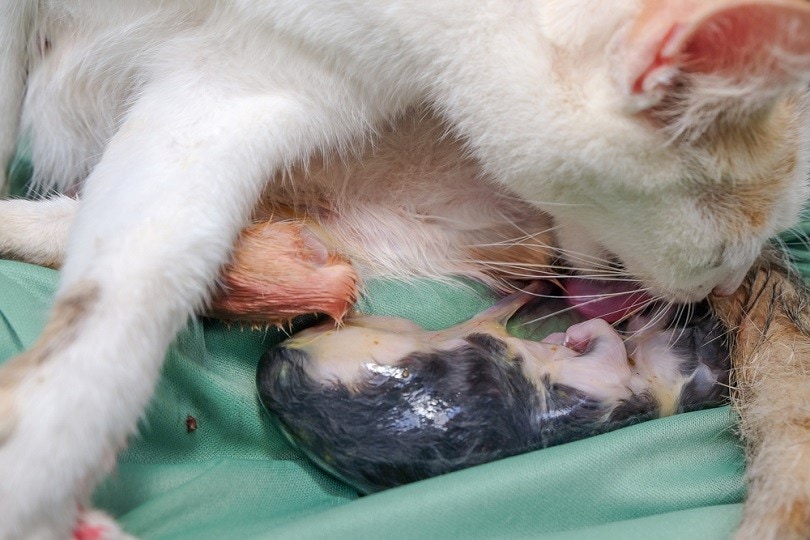
What to Do After the Kittens Are Born
Luckily, the momma cat will take care of most of the newborn kitten’s needs, but there are still a few things you should do to ensure the health and safety of these kittens as they grow.
1. Keep Them Warm
Kittens need a warm and safe environment to help them grow and develop properly. Make sure the room they are in is heated or at least kept above 70 degrees Fahrenheit. Additionally, provide plenty of soft bedding such as towels or blankets for the kittens to snuggle up in.
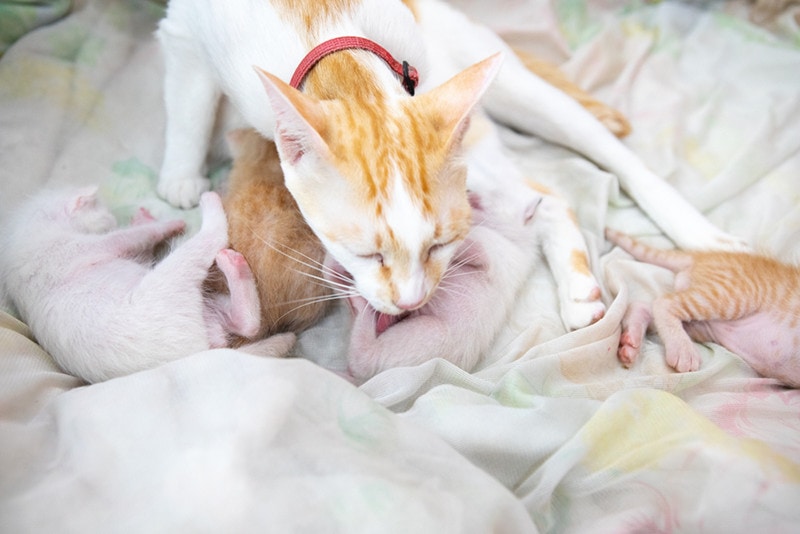
2. Clean Them as Needed
Newborn kittens should only be bathed when absolutely necessary, as baths can be very stressful for them. If your kitten gets dirty, you can use a shampoo specifically formulated for kittens and spot clean them, then dry them thoroughly afterwards. Additionally, keep their bedding clean by washing it often.
3. Feed Them Properly
After kittens have been weaned from their mother, they need to be fed a diet formulated specifically for kittens. Do not feed them adult cat food as it does not provide the necessary nutrients they need at this stage in their development.

4. Monitor Their Health
Regular check-ups are important for ensuring your kittens stay healthy. Take them to the vet for a full examination and first vaccines around 8 to 9 weeks of age, check timings with your veterinary clinic. Additionally, watch out for any signs of illness such as diarrhea, vomiting, or lethargy.
5. Socialize Them
Kittens need socialization in order to develop properly and be friendly around other animals and people. Practice trips in the car and pet carrier, make it a rewarding experience by offering treats. Introduce them to other pets and visitors to help them learn how to interact with others. Additionally, provide plenty of toys and other items for them to explore. The socialization window for cats is much shorter than dogs and is between 2 and 7 weeks of age.
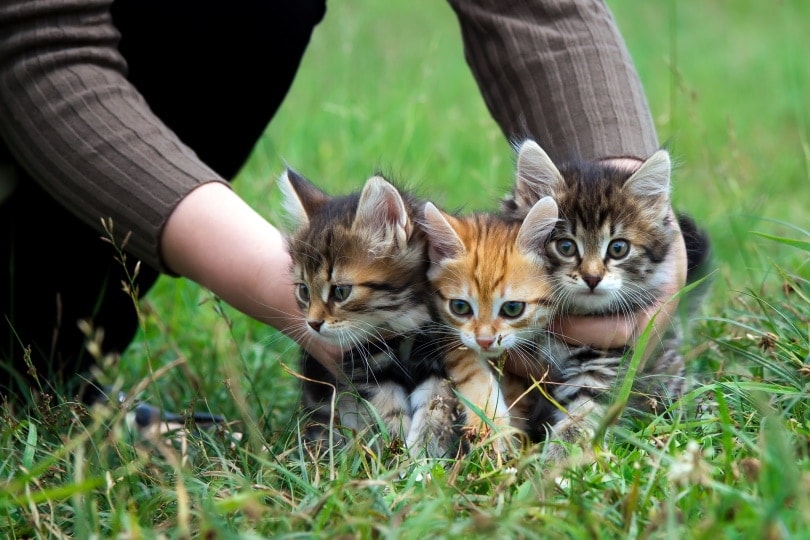
6. Train Them
Kittens need to be taught how to use the litter box and not scratch furniture or carpets. Be patient and consistent when training your kittens so that they understand the rules of the house.
7. Spay or Neuter
It is important to spay or neuter your kittens when they reach the age of five to six months in order to help control pet overpopulation and certain diseases such as FIV (feline immunodeficiency virus). Talk to your veterinarian about the pros and cons of this procedure before making a decision.
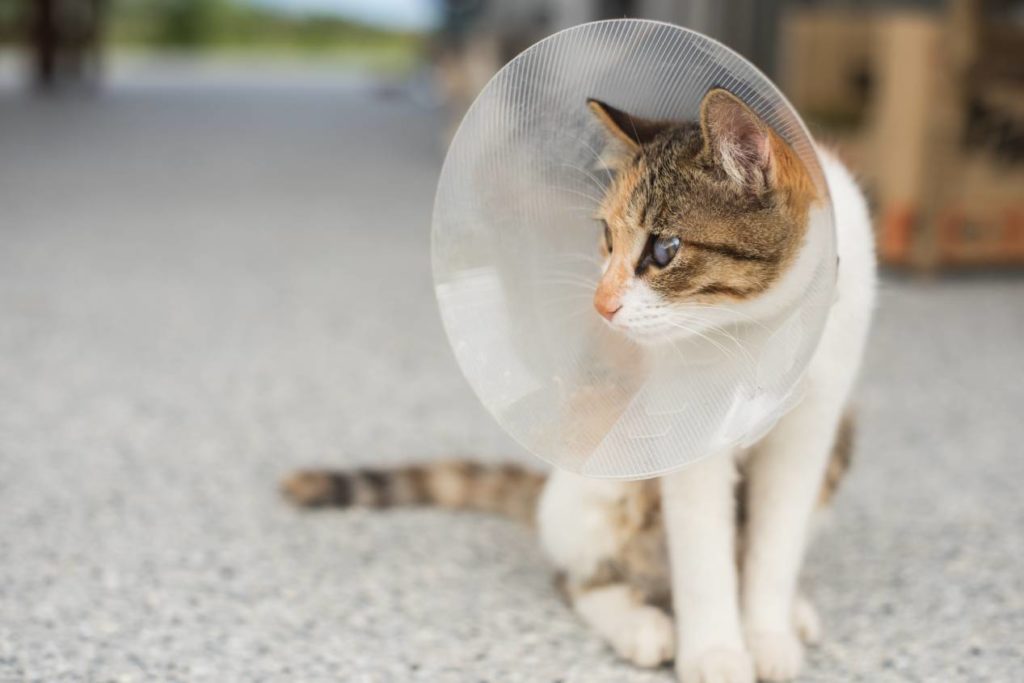
8. Microchip
In order to ensure you can be reunited with your kittens if they ever get lost, it is important to have them microchipped. This tiny chip will provide a link to your contact information and be embedded under the skin between their shoulders.
9. Provide Toys
Kittens need plenty of activities to keep them occupied and help them develop properly. Provide plenty of fun toys such as balls, feathers, or stuffed animals for the kittens to play with.
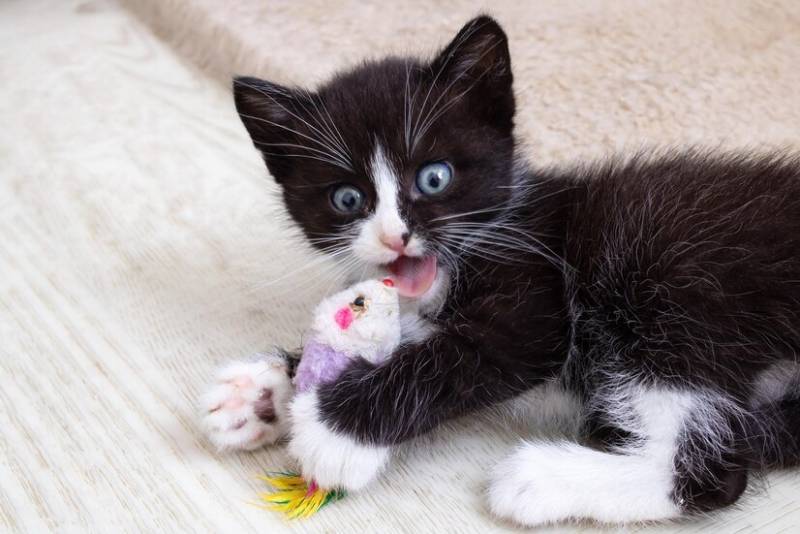
10. Get Help
Owning a litter of kittens can be hard work and it is important to get help if needed. Ask family and friends for assistance in caring for your kittens or contact a local vet, animal shelter or rescue group for advice.
 FAQs
FAQs
What is the best way to handle newborn kittens?
Be sure to wash your hands before handling newborn kittens and always be gentle when picking them up or moving them around. Additionally, make sure they are always kept in a warm, safe environment with plenty of soft bedding and places to hide.
When do kittens open their eyes?
Kittens usually open their eyes between 7 and 14 days old.
How can I tell if a kitten is healthy?
Look for signs of clear eyes, alertness, good muscle tone and weight gain. Additionally, take them to the vet for regular check-ups and vaccinations.
What sounds should newborn kittens make?
Newborn kittens will usually mew, and squeal when they are hungry or seeking attention from their mother. Additionally, they may also vocalize when they are distressed or uncomfortable. As they get older, kittens may learn to chirp, purr, growl, and hiss.
When will the kittens be weaned?
Kittens typically start to wean off their mother’s milk when they are between 4 and 6 weeks old. During this time, you can introduce them to wet kitten food and encourage them to eat it by hand feeding them.
What if the mother won’t feed the kittens?
If the mother isn’t feeding her kittens, you should take them to a veterinarian for a check-up as soon as possible. The vet can provide supplemental nutrition or advice on how to hand feed the kittens if necessary. They may also be able to determine if there is an underlying medical issue preventing the mother from nursing properly.
What is the best way to feed kittens after they’ve been weaned?
Kittens need to be fed a specially formulated kitten food that provides the right balance of proteins, carbohydrates, and fats. When kittens are younger than four weeks old, they should be fed wet or canned cat food. After four weeks of age, you can introduce dry kibble mixed with wet food.
How do I tell if the kittens are male or female?
Kittens can be difficult to sex until they are at least 6 weeks old. Male kittens have a larger ano-genital distance than females. When you lift the tail the first opening is the anus, below this is the genital opening. It tends to look like a round opening in males and a slit shape in females. A veterinarian can also help you determine the gender of your kitten if needed.
Kittens can start to be socialized with people, other cats, and other animals as soon as they are old enough to be away from their mother. Typically, this is around four weeks of age.

Do I need to trim my kitten’s claws?
Yes, you should regularly trim your kitten’s claws to prevent them from becoming too long and sharp. A nail clipper designed for cats can be used, or you can have a professional groomer do it for you.
How often should I take my kitten to the vet?
Kittens should go for veterinary check-up at their first vaccinations (8 to 9 weeks) or earlier. They will need regular visits in their first year for vaccination, worming and sterilization. After this most cats have a check up once or twice a year.
What health problems can affect kittens?
Kittens are susceptible to a variety of illnesses and diseases, such as respiratory infections, intestinal parasites, feline leukemia virus (FeLV), and feline immunodeficiency virus (FIV). Regular visits to the vet will help you monitor their health and catch any problems early.
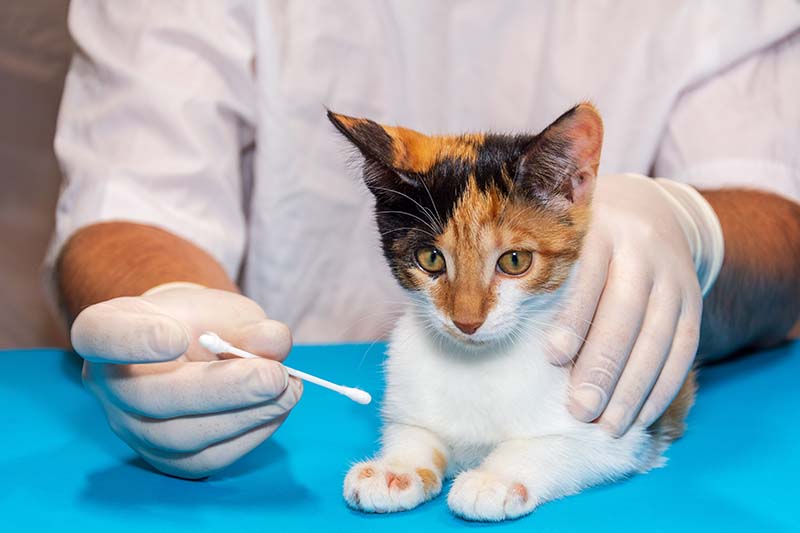
What can I do to make my kitten’s home safe?
Make sure your home is pet-proofed for kittens by removing any items that may be dangerous, such as electrical cords, plastic bags, fabrics, and houseplants. Additionally, provide a safe space for them to retreat to if they ever feel scared or overwhelmed.
When can I let my kitten go outdoors?
It is generally recommended that you wait until your kitten is at least four months old before letting them venture outside. You should also make sure they are spayed or neutered and vaccinated before going outdoors. Additionally, keep an eye on them when they do go outside to make sure they don’t get into any trouble.
How can I litter train my kitten?
Start by introducing the kitten to their litter box as soon as possible. Make sure the box is always kept clean and in a quiet area of the house. When your kitten uses the box, reward them with praise or a small treat to reinforce the behavior.
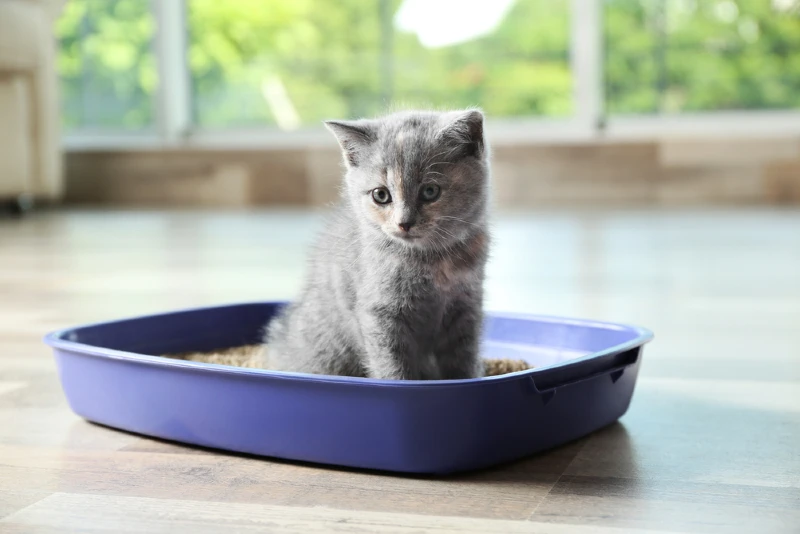
What should I do if my kitten gets lost?
If your kitten is lost, check with local animal shelters and rescue organizations to see if anyone has seen them. Additionally, you can post flyers with your kitten’s photo and description or contact your local veterinarians in case someone has brought them in for medical care.
When Can the Kittens Go to Their Forever Homes?
Once the kittens are at least eight weeks old, they can go to their forever homes. They should be vaccinated before they leave and have received worming and flea treatments. Make sure that the new owners are prepared to take care of a kitten and provide them with a safe and loving home.
Making Sure the Kittens Find Loving Homes
If you’ve found yourself in possession of a litter of kittens, it’s important to make sure they go to loving and responsible homes. Make sure potential owners are aware of the commitment they will be making by adopting a kitten and ask them questions about how they plan on providing for their new pet. You should also require any adopters to spay or neuter their kitten, as this helps control pet overpopulation.
By taking the time to properly care for kittens and find them well-suited homes, you’ll be helping to ensure that they have happy and healthy lives. As a bonus, you may even make some new friends in the process!
 Conclusion
Conclusion
Caring for kittens is a big responsibility, but it can be incredibly rewarding! With a little hard work and dedication, you can make sure that these furry friends have the best start in life. Be sure to provide them with proper nutrition, regular visits to the vet, and a safe environment—and don’t forget about finding them loving forever homes!
Featured Image Credit: NataVilman, Shutterstock



